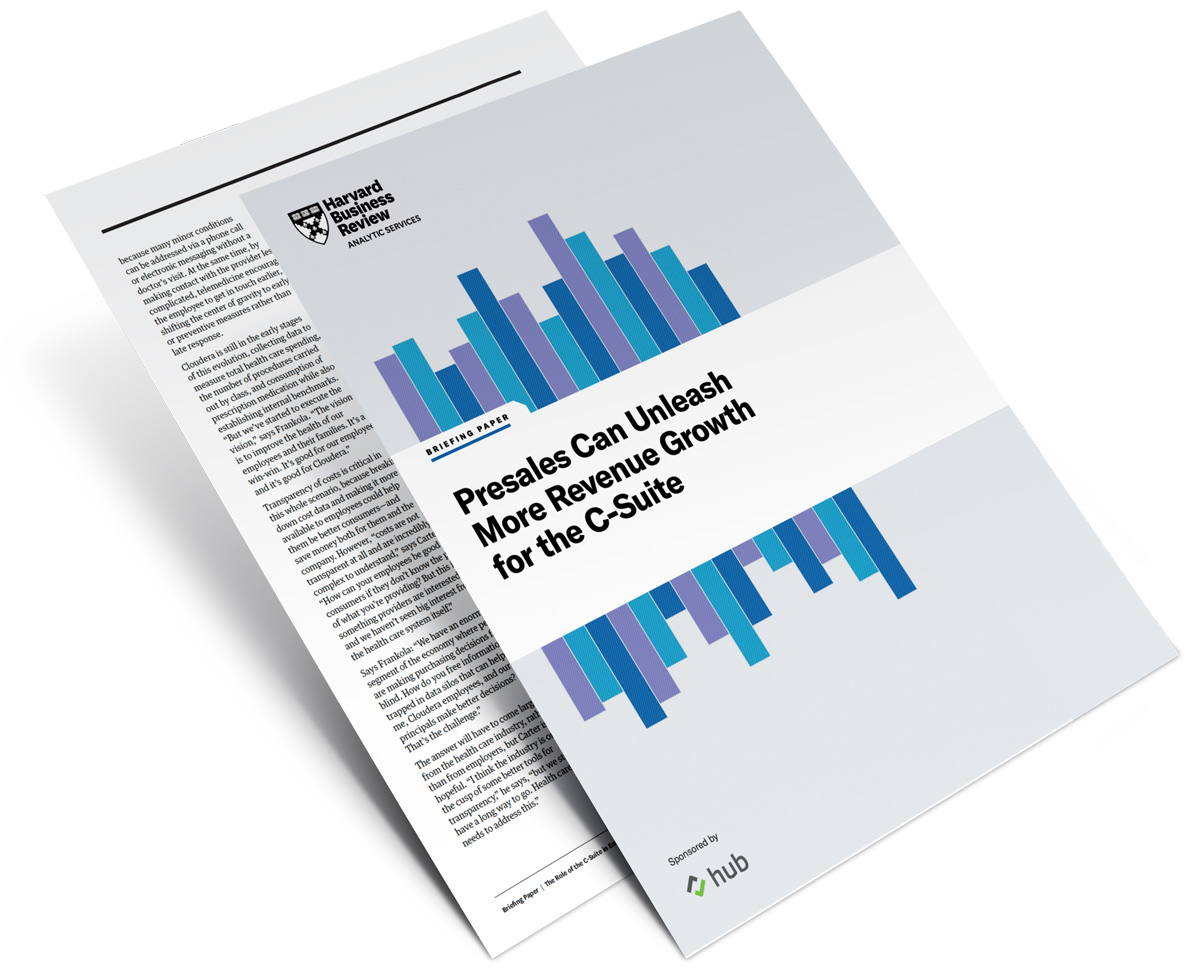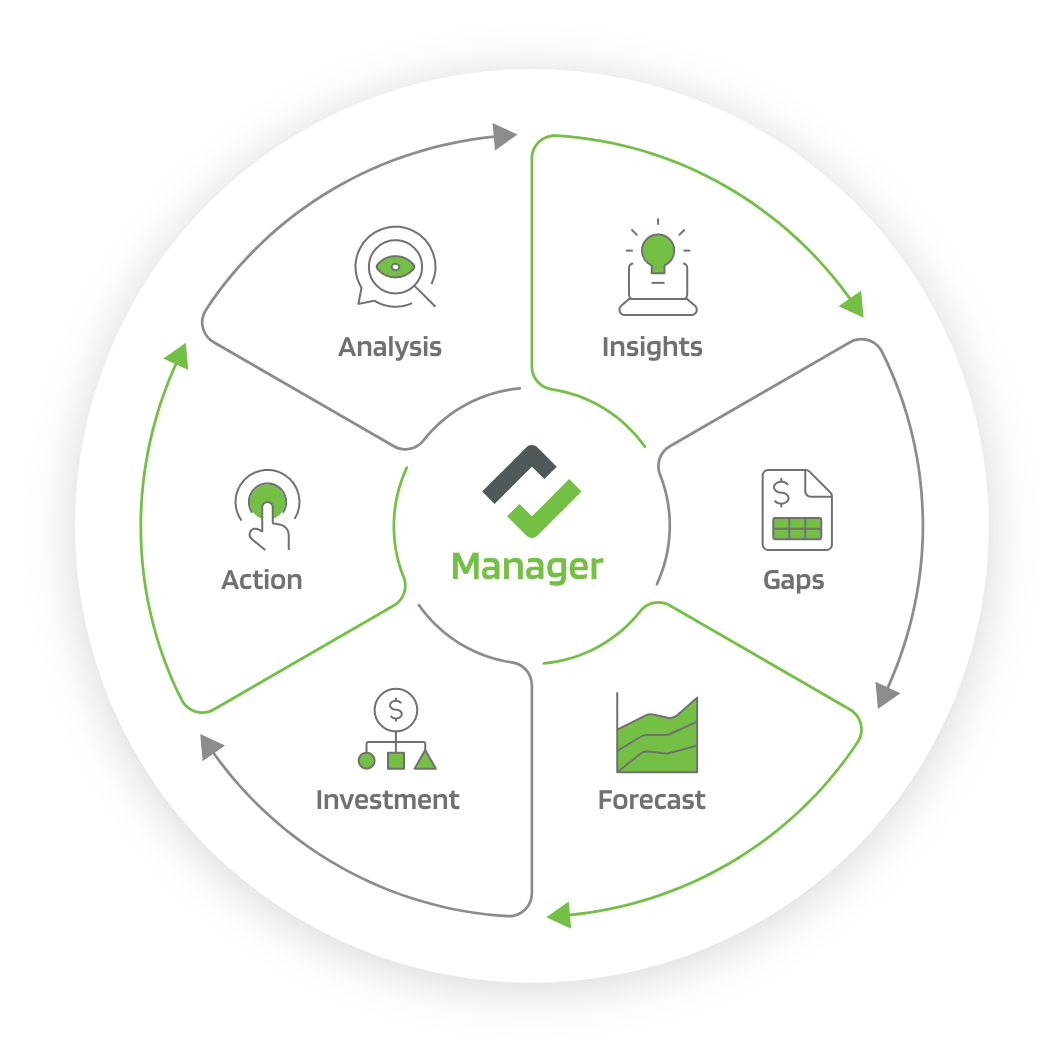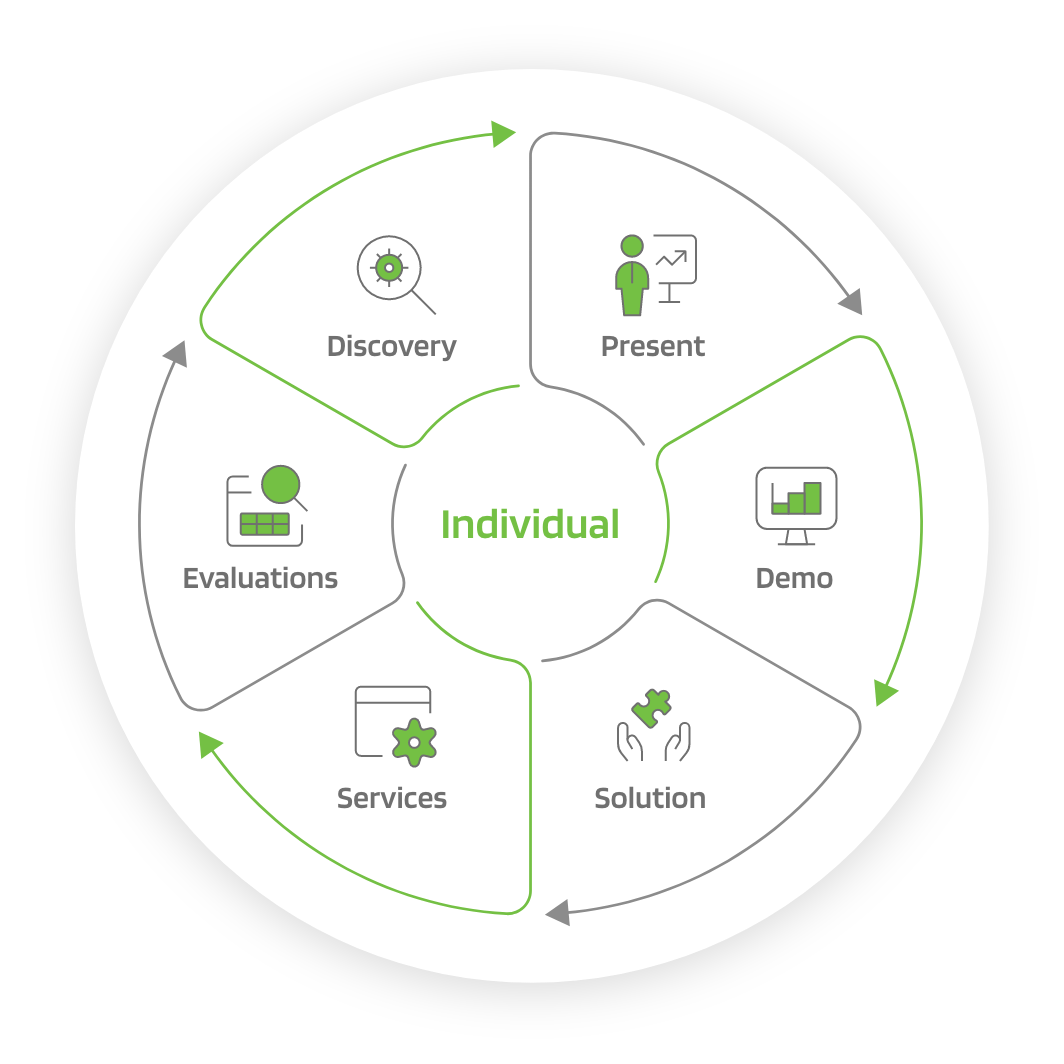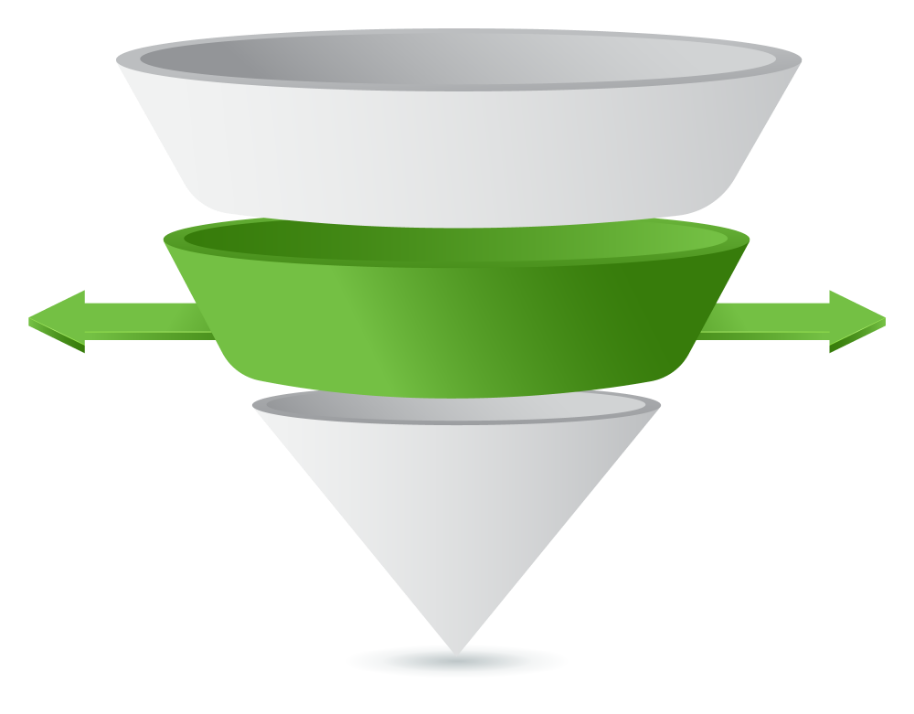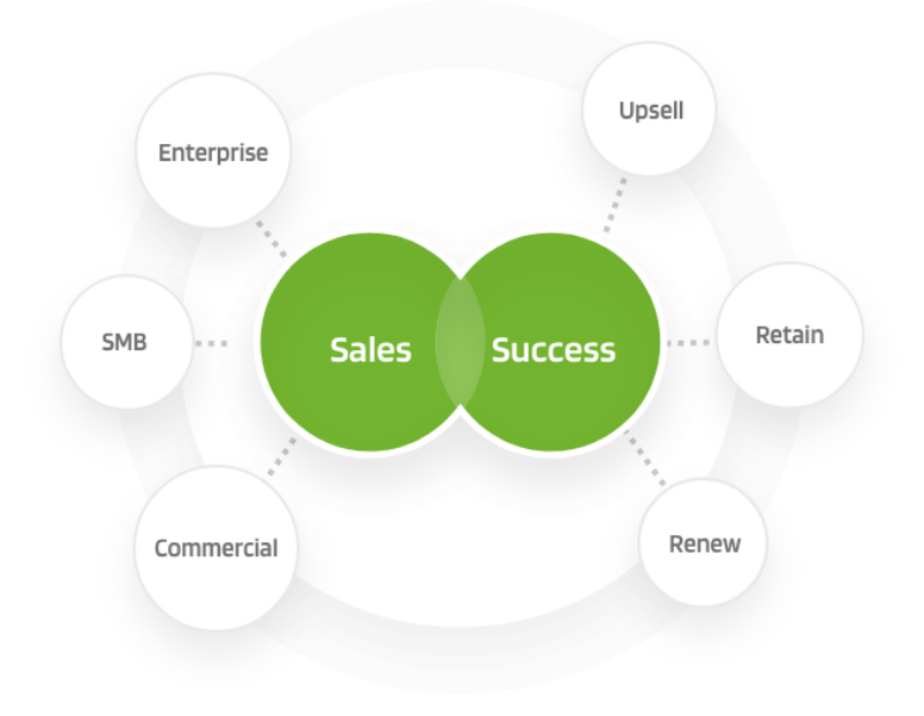
Technical Sales by Hub
Sales Engineer Leaders: Get To Know Your Chief Revenue Officer

Your Chief Revenue Officer (CRO) is one of the most critical executive functions responsible for growth. While this sales leader is often portrayed to be brash, aggressive, and hard-charging (think Alec Baldwin in the movie Glengarry Glen Ross), nothing could be further from the truth. Good CROs inspire sales teams and collaborate with the rest of the executive team to reach their goals.
Understanding your CRO
In my experience, successful CROs typically possess high emotional intelligence, are masterful in handling prospects, operate with integrity, inject a high sense of urgency into the organization, and ensure product-to-value fit with partners and customers. But the exact profile of a good CRO largely depends on the maturity of your company. As Jason Levkin describes in his blog, The 48 Types of VP Sales. Make Deadly Sure You Hire the Right One, this isn’t a one-size-fits-most kind of hire. That said, whether you’re just starting out or a large public company, your CRO is responsible for three core things: leading people, managing processes, and growing revenue.

People
Great CROs are inspirational leaders and amazing coaches to their staff. They are not in it for their egos and don’t play the blame game, but rather work “the problem” with their teams to ensure growth milestones are accomplished. These attributes show up daily in the way he or she leads their sales team with the right incentives to drive desired behaviors. They also manage sales staff turnover, which is expected in a performance-driven environment, in a respectful way. It’s important that your CRO ensures that sales hires match your company’s stage of growth. To ensure that all executives understand what will be required to meet growth targets, the CRO will typically build the pro forma financial model with the CEO, CFO, and Head of People, and make it visible to the CPO, CTO, and CMO to ensure that all executives understand what will be required to meet growth targets.
Process
CROs are students of their craft who understand and practice various sales methodologies (check out a great video, “Overview of Four Sales Methodologies,” for more information on sandler, spin, customer-centric, and strategic selling approaches). They use any combination of these sales methodologies to build a revenue model, identify sales stages, and accurately measure the “health” of the revenue pipeline. Additionally, with their peers, they identify issues within the funnel that impede sales velocity. For instance, the handoff between a marketing qualified lead (MQL) to a sales accepted lead (SAL) is a common point of friction. Having a clear definition and process for handoff will ensure the acceleration of time to value (TTV) and eventually time to revenue (TTR). Your CRO should always be fine-tuning the processes to ensure that everyone in the company has a sense of ownership over the sales model.
Revenue
Sales compensation models can be driven by revenue, bookings, annual recurring revenues (ARR), margin, or a mix of metrics that are applicable to the business (to learn more, check out this post from Xcatly on crafting sales commission models). It’s your CRO’s responsibility to drive alignment with your CFO and CEO on the key metrics that are material to enable the right sales and partner behavior that ultimately drives revenue growth. Then your CRO must partner with your CPO and CMO to ensure appropriate messages and tools exist to empower the sales team to effectively accelerate revenue with key persons involved in the sales cycle (e.g., buyer, user, champion, and blocker). It is common for CROs to be on the “front lines” to ensure that the company has the right tools, people, and processes in place throughout every growth phase of the company.
Summary
CRO profiles vary by growth stages of $5M, $25M, $50M, $100M+ ARR. Some CROs are more suitable for certain ARR bands vs. others, but the focus areas of CRO on leading people, managing processes, and growing revenues holds true, regardless of company stage.
Here are ten questions for sales engineer leaders to define with your CRO.
- What are the booking objectives?
- What is the booking mix across enterprise, commercial and SMB transactions?
- What is the booking mix across SLG (Sales Led Growth) vs. PLG (Product Led Growth?
- What is the booking mix of net new compared to renew, expand and upsell?
- Will there be a 100% attach rate goal to presales for all businesses?
- What sales stages will require presales technical RFP, discovery, presentation, demo, solution, evaluation (POC/POV) and other support?
- What are the anticipated per unit economics (AE and SE cost) per transaction across enterprise, commercial and SMB deals?
- How will AEs request sales engineering resources?
- What investment in people, processes and tooling will be required to drive efficiencies within the sales engineering organization?
- How much leverage can be recognized in meeting or exceeding top-line objectives by optimizing middle-of-the-funnel conversions via presales?
